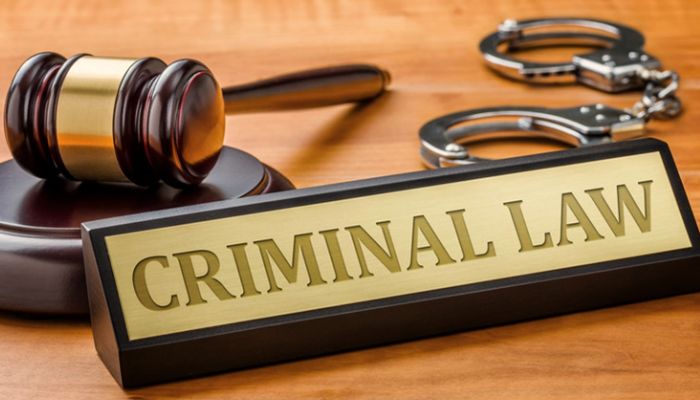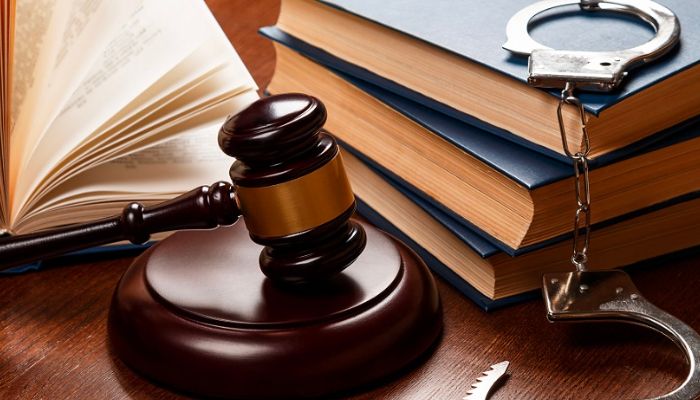
Handling Criminal Matters with Expertise
Navigating the complexities of criminal law requires a deep understanding of the legal system and the expertise of skilled legal professionals. When individuals find themselves entangled in criminal matters, the path to justice can seem daunting. This is where the role of a criminal defence lawyer becomes paramount, offering guidance, legal representation, and the assurance that one’s best interests are being pursued within the confines of the law.
The Foundation of Criminal Defence
At the heart of criminal defence is the principle of ensuring justice for the accused party, while respecting the rules and procedures established by the legal system. This encompasses a broad spectrum of activities, from the initial hearing to the final appeal, each step guided by the overarching aim to defend the client’s rights and interests. A criminal defence lawyer’s expertise is not just in arguing a case but in understanding the nuances of law, the nature of offences, and the jurisdiction under which the case falls.
The Role of Legal Representation
Legal representation in criminal matters goes beyond mere advocacy. It involves a comprehensive approach to gathering evidence, preparing for trial, and making informed decisions that align with the client’s best interests. Lawyers specialise in navigating the federal court system, leveraging their knowledge to challenge the prosecution’s case and seek the most favourable outcome for their clients. This process is intricate, requiring a familiarity with the legal procedures, rules of evidence, and the ability to engage expert witnesses to support the defence.

Expert Witnesses and Informed Decisions
The utilisation of expert witnesses in criminal proceedings underscores the importance of having sufficient information to support the defence. These individuals bring specialised knowledge to the court, aiding in the interpretation of evidence and providing insights that can challenge the prosecution’s narrative. The decision to involve expert witnesses in proceedings is a strategic one, reflecting the lawyer’s understanding of the case’s complexities and the need to present a robust defence.
Navigating the Legal System
The legal system, with its array of rules, acts, and procedures, serves as the backdrop against which the conduct and criminal matters are addressed. Legal professionals must be adept at manoeuvring through this system, from the initial filing of charges to the trial and, if necessary, the appeal process. This requires a comprehensive understanding of criminal law, the ability to interpret and apply legal precedents, and the skill to argue effectively in front of judges and juries.
The Importance of Preparation and Strategy
Preparation is key in criminal defence. This involves not only the accumulation of evidence and witness statements but also the development of a legal strategy tailored to the specific circumstances of the case. Lawyers must assess the strengths and weaknesses of their client’s position, anticipate the prosecution’s strategy, and prepare to counteract with compelling arguments and evidence. The goal is to ensure that the client’s case is presented in the most persuasive manner possible, taking into account the relevant laws, precedents, and legal standards.
The Strategic Defence in Criminal Law
A criminal defence lawyer’s strategy is a blend of art and science, requiring an intimate understanding of legal precedents and procedure, a thorough investigation of the evidence, and a keen insight into human behaviour. The defence’s preparation involves a meticulous review of the prosecution’s case, identifying weaknesses and inconsistencies in the evidence presented. It’s not merely about challenging the evidence but also about presenting an alternative narrative that casts reasonable doubt on the prosecution’s assertions.
Expert witnesses play a crucial role in this context, offering specialised knowledge that can challenge the prosecution’s evidence or support the defence’s narrative. Whether it’s forensic analysts, medical professionals, or psychological experts, their testimony can profoundly influence the jury’s perception and the trial’s outcome. The ability to select and effectively utilise expert witnesses is a testament to a lawyer’s expertise and their commitment to represent their client’s best interests.

Informed Decisions and Client Empowerment
The journey through the criminal legal system is fraught with decisions that can significantly impact the outcome of a person or case. From deciding whether to accept a plea bargain to choosing whether to testify, clients rely on their lawyers for guidance and clarity. A criminal defence lawyer must ensure that their clients have sufficient information to make these decisions, explaining complex legal procedures and potential consequences with clarity and empathy.
This empowerment enables clients to take an active role in their defence and prosecution, making choices that align with their values and the realities of their situation. It’s a collaborative process, where the lawyer and client work together to navigate the challenges of the legal system, always with an eye towards achieving the most favourable outcome.
The Final Stages: Trial and Beyond
As a case progresses to trial, the courtroom becomes a stage for the defence lawyer to showcase their advocacy skills. Opening statements, cross-examinations, and closing arguments are opportunities to persuade the judge and jury of the client’s position. The lawyer’s ability to weave together legal knowledge, evidentiary challenges, and compelling storytelling is crucial in swaying the court’s opinion.
However, the defence lawyer’s role doesn’t end with the trial. Post-trial motions, sentencing advocacy, and appeals are all part of the continuum of representation. In some cases, achieving justice requires challenging the trial’s outcome, seeking a reduction in sentencing, or appealing the sentence to higher courts. Each step requires a deep understanding of legal procedures, a strategic approach to advocacy, and an unwavering commitment to the client’s interests.
Conclusion
Handling criminal matters with expertise is a multifaceted endeavour that demands not only a profound understanding of the law but also a compassionate approach to client representation. Criminal defence lawyers are not just legal professionals; they are guardians of the legal system’s integrity, ensuring that every individual receives the fair trial that is their right. Through strategic defence, empowering clients with information, and relentless advocacy, they uphold the principles of justice, one case at a time.
In the realm and practice of criminal law, expertise, dedication, and an unwavering commitment to justice are the hallmarks of effective legal representation. As we’ve explored, navigating the complexities of the legal system, from the nuances of evidence to the subtleties of courtroom dynamics, requires a comprehensive approach that balances legal acumen with a deep respect for the human elements at play.
This article is of a general nature and is intended for information only. It should not be relied upon as legal advice. If you require further information, advice or assistance for your specific circumstance, please contact us at Bouchier Khan Lawyers.
